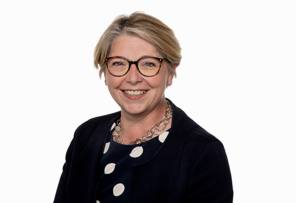

The Bank of England is asking banks and building societies to be ready to implement negative interest rates by the end of the summer, as it kept the base rate at 0.1 per cent.
Although the central bank was clear it did not intend to set a negative bank rate at this stage, minutes from the latest Monetary Policy Committee meeting showed it would ask firms to prepare for negative rates in case it was necessary for the future.
The Prudential Regulation Authority is to write to chief executives of the firms it regulates — which includes banks, building societies, insurers and credit unions — and request the firms be ready to implement a negative bank rate at any point after six months.
This was to ensure the MPC had access to negative interest rates as part of its “monetary policy toolkit”.
The pound rose 0.7 per cent against the dollar on the news that negative rates were not likely to be implemented imminently, alongside the bank’s more positive outlook for a post-Covid recovery.
MPC committee members were split on the decision however, the minutes showed.
Some members thought there was “little reason” not to request the start of preparations, and therefore providing the BoE with the option of negative rates at the earliest opportunity, while others were concerned such a move would “inevitably” be interpreted as a signal such rates were on the way.
The PRA has already worked with firms to understand the operational issues of zero or negative interest rates.
Banks told the BoE that the implementation of a negative rate over a shorter timeframe than half a year would attract “increased operational risks”, as they would need to make changes to their systems and a rushed period could adversely impact the safety and soundness of some companies.
Laith Khalaf, financial analyst at AJ Bell, said: “Irrespective of what the BoE says, it’s likely markets will take this as a negative sign for longer term UK interest rate policy, even if it is designed simply to cover all bases as the pandemic continues to elevate economic uncertainty.
“Negative interest rates are still not a done deal though. The default position for the Bank now is to sit on its hands, unless there is a clear and present need for more monetary stimulus.”
Myron Jobson, personal finance campaigner at Interactive Investor, agreed, noting that the fact negative interest rates were on the cards would “be enough to worry savers”.
The comments come as the MPC voted unanimously to keep its rate at 0.1 per cent and to maintain the size of its bond-buying programme.
“The outlook for the economy remains unusually uncertain,” the MPC said. “It depends on the evolution of the pandemic, measures taken to protect public health and how households, businesses and financial markets respond to these developments.”
It also predicted inflation would rise “quite sharply” towards the 2 per cent target in the spring, as the reduction in VAT for certain services came to an end and energy prices were likely to continue to rise.
GDP was projected to recover rapidly towards pre-Covid levels over 2021 as the vaccination programme is assumed to lead to an easing of Covid-related restrictions.
imogen.tew@ft.com
What do you think about the issues raised by this story? Email us on FTAletters@ft.com to let us know



